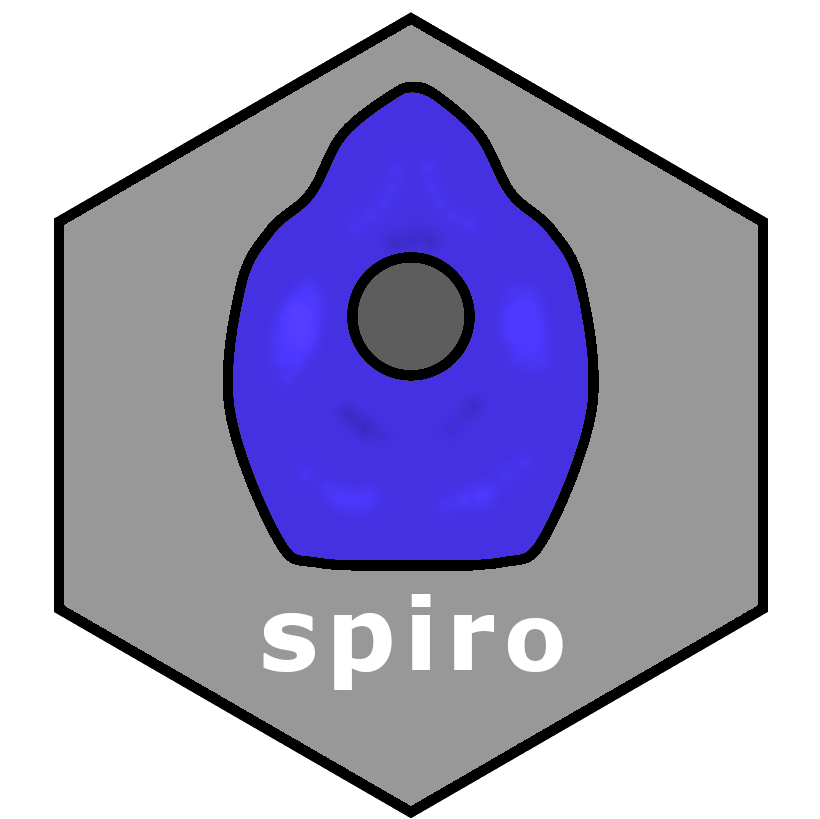

This R package offers a fast, standardized and reproducible workflow for data from cardiopulmonary exercise testing. It offers tools for data import, processing, summary and visualization.
Measuring gas exchange during physical exercise is a common procedure in sports science and medicine. It allows to assess the functional limit of the cardiovascular system, evaluate the success of training interventions, and diagnose cardio-respiratory diseases. The measuring devices of cardiopulmonary exercise testing — so-called metabolic carts — output their data in different formats. Moreover, measured breath-by-breath data is noisy and requires post-processing. This package standardizes the import and processing of raw data from different metabolic carts.
Install the current development version from GitHub:
if (!require(remotes)) install.packages("remotes")
remotes::install_github("ropensci/spiro")Install the latest version 0.1.0 release by running this code:
if (!require(remotes)) install.packages("remotes")
remotes::install_github("ropensci/spiro@v0.1.0")Main functions:
spiro() to automatically import and process raw
data from cardiopulmonary exercise testing.spiro_summary() for a summary of cardiopulmonary
parameters (e.g., relative oxygen uptake, respiratory quotient, heart
rate, …) for each load step.spiro_max() to calculate maximum parameter values
(e.g., VO2max).spiro_plot() to visualize the data as a modifiable
Wassermann 9-Panel Plot.Further functionality:
The following metabolic carts are currently supported by
spiro:
Support for further metabolic carts is planned for future releases.
library(spiro)
# get data path for example
file <- spiro_example("zan_gxt")
# import and process the raw data
gxt_data <- spiro(file)
# summary of parameters by load step
spiro_summary(gxt_data)
#> for pre-measures, interval was set to length of measures (60 seconds)
#> step_number duration load VO2 VCO2 VE HR PetO2 PetCO2 VO2_rel
#> 1 0 60 0.0 500.19 411.74 13.03 NA NA NA 7.58
#> 2 1 300 2.0 1860.92 1585.75 39.87 NA NA NA 28.20
#> 3 2 300 2.4 2097.82 1805.27 44.63 NA NA NA 31.79
#> 4 3 300 2.8 2413.01 2122.17 52.63 NA NA NA 36.56
#> 5 4 300 3.2 2710.68 2319.93 57.19 NA NA NA 41.07
#> 6 5 300 3.6 3048.75 2684.87 67.45 NA NA NA 46.19
#> 7 6 300 4.0 3404.02 3026.70 75.91 NA NA NA 51.58
#> 8 7 300 4.4 3724.37 3383.64 88.36 NA NA NA 56.43
#> 9 8 300 4.8 4223.82 3993.55 106.44 NA NA NA 64.00
#> 10 9 300 5.2 4573.91 4488.36 127.54 NA NA NA 69.30
#> RE RER CHO FO
#> 1 NA 0.82 0.27 0.15
#> 2 234.97 0.85 1.27 0.46
#> 3 220.73 0.86 1.51 0.49
#> 4 217.62 0.88 1.95 0.48
#> 5 213.91 0.86 1.89 0.65
#> 6 213.86 0.88 2.47 0.60
#> 7 214.90 0.89 2.90 0.62
#> 8 213.75 0.91 3.50 0.56
#> 9 222.21 0.95 4.68 0.37
#> 10 222.12 0.98 5.82 0.12
# maximum values
spiro_max(gxt_data)
#> VO2 VCO2 VE VO2_rel RER HR
#> 1 4732.28 4640.75 129.62 71.7 0.99 NA
# Wassermann 9-Panel Plot
spiro_plot(gxt_data)
citation("spiro")
#>
#> To cite spiro in publications use:
#>
#> Simon Nolte (2022). spiro: Manage Data from Cardiopulmonary Exercise
#> Testing. R package version 0.1.0. DOI: 10.5281/zenodo.1040727.
#> https://docs.ropensci.org/spiro
#>
#> A BibTeX entry for LaTeX users is
#>
#> @Manual{,
#> title = {spiro: Manage Data from Cardiopulmonary Exercise Testing},
#> author = {Simon Nolte},
#> year = {2022},
#> url = {https://docs.ropensci.org/spiro/},
#> doi = {10.5281/zenodo.5816170},
#> note = {R package version 0.1.0},
#> }The whippr package offers a different approach to working with data from cardiopulmonary exercise testing. It additionally offers functions for analyzing VO2 kinetics.
The following persons contributed to this package by providing raw data files: Daniel Appelhans, Sebastian Mühlenhoff, Yannick Schwarz, Adrian Swoboda, Andreas Wagner.
If you consider contributing to this package, read the CONTRIBUTING.md. Please note that this package is released with a Contributor Code of Conduct. By contributing to this project, you agree to abide by its terms.